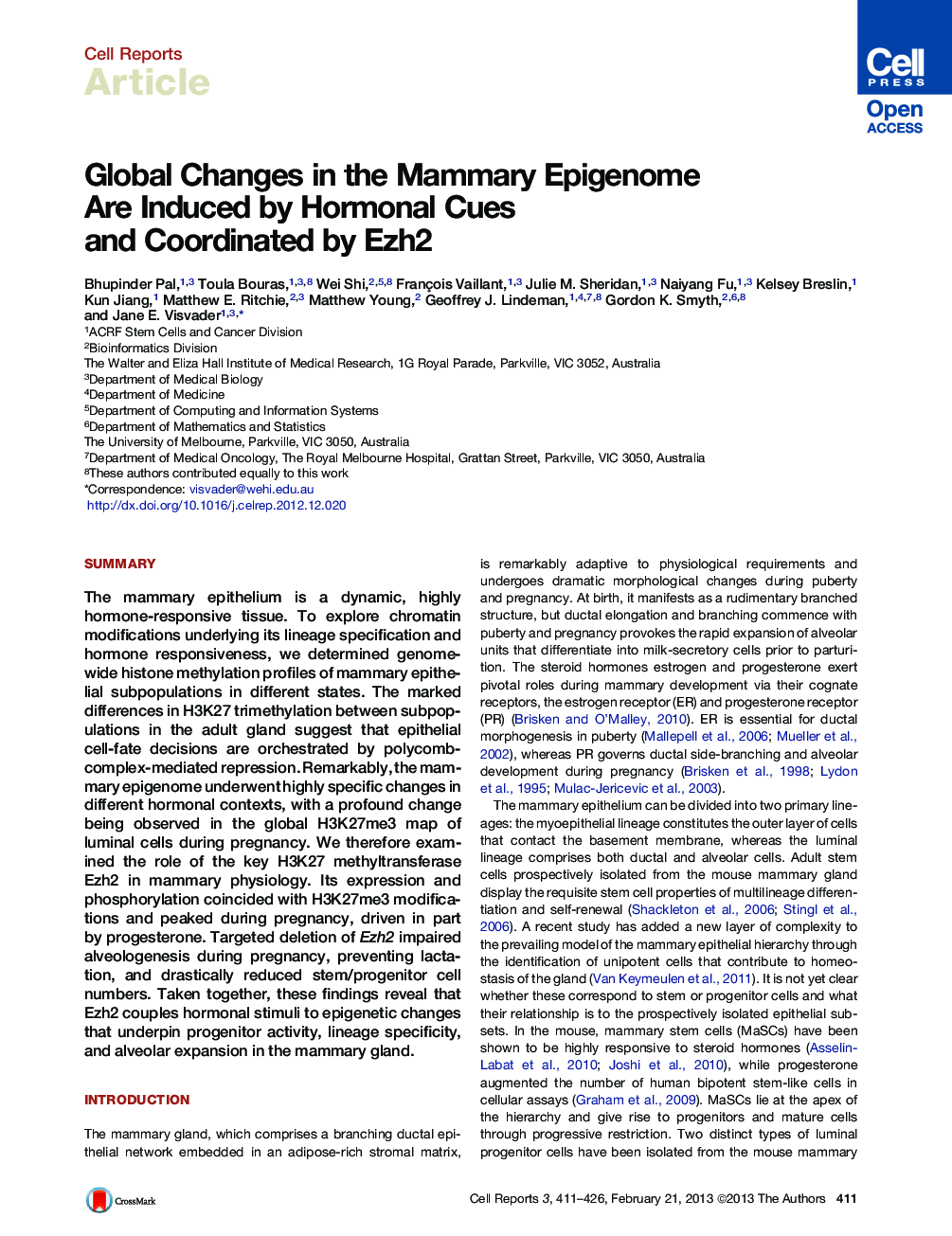| Article ID | Journal | Published Year | Pages | File Type |
|---|---|---|---|---|
| 2042183 | Cell Reports | 2013 | 16 Pages |
SummaryThe mammary epithelium is a dynamic, highly hormone-responsive tissue. To explore chromatin modifications underlying its lineage specification and hormone responsiveness, we determined genome-wide histone methylation profiles of mammary epithelial subpopulations in different states. The marked differences in H3K27 trimethylation between subpopulations in the adult gland suggest that epithelial cell-fate decisions are orchestrated by polycomb-complex-mediated repression. Remarkably, the mammary epigenome underwent highly specific changes in different hormonal contexts, with a profound change being observed in the global H3K27me3 map of luminal cells during pregnancy. We therefore examined the role of the key H3K27 methyltransferase Ezh2 in mammary physiology. Its expression and phosphorylation coincided with H3K27me3 modifications and peaked during pregnancy, driven in part by progesterone. Targeted deletion of Ezh2 impaired alveologenesis during pregnancy, preventing lactation, and drastically reduced stem/progenitor cell numbers. Taken together, these findings reveal that Ezh2 couples hormonal stimuli to epigenetic changes that underpin progenitor activity, lineage specificity, and alveolar expansion in the mammary gland.
Graphical AbstractFigure optionsDownload full-size imageDownload as PowerPoint slideHighlights► The mammary epigenome is highly sensitive to steroid hormones at specific developmental stages ► Ezh2 links hormonal cues to changes in chromatin structure and gene expression ► Progesterone is a key in vivo regulator of Ezh2 ► Hormone-induced chromatin changes likely play a role in the initiation of breast cancer
